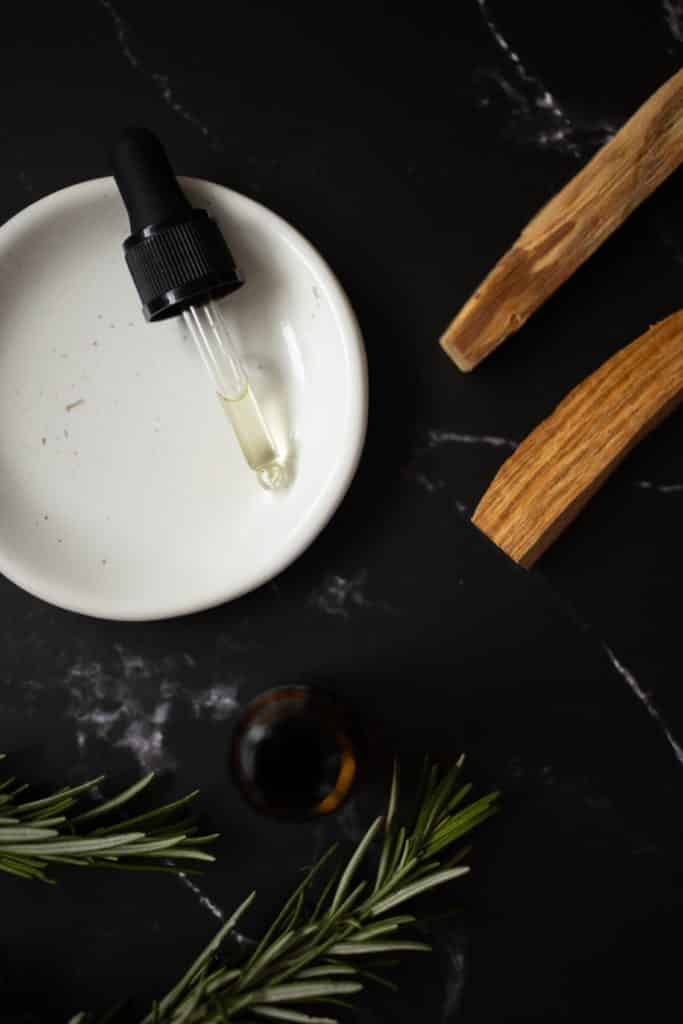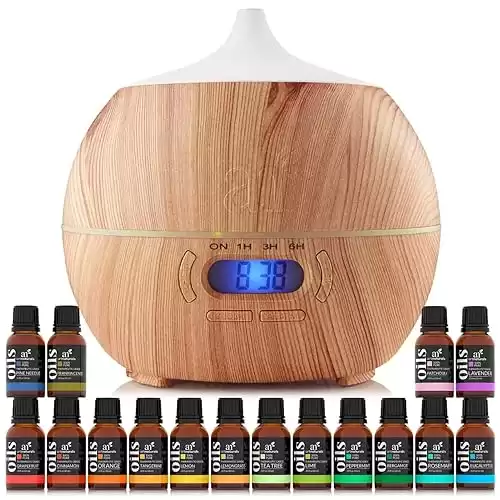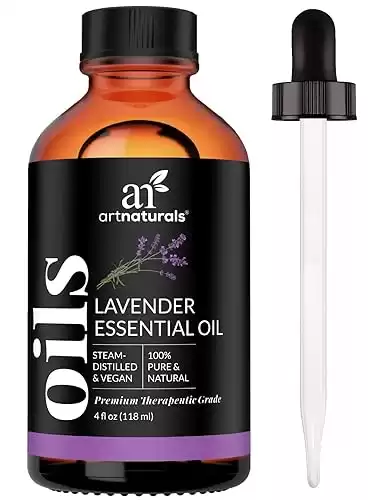9 Essential Oils For Sleep & How You Can Make Full Use Of Them
More than one-third of adults in the United States don’t get the recommended sleeping hours every night. As the market for essential oils is growing speedily in the United States and across the globe, many people are now knowledgeable about essential oils for sleep. They are pretty eager to know if these essential oils are beneficial when you cannot sleep.
The essential oils for sleep are derived from different plants, typically by steam distilling and crushing other parts of the related plant. There have been various essential oils as a medical treatment since early times. What’s more, aromatherapy includes the inhalation of the essential oil scents or the oils vapors in the hopes of getting beneficial health effects. Studies show that as smell impacts sleep, incorporating different essential oils for sleep might help people get better results.
This product includes the following essential oils and a beautiful wooden diffuser:
- Tea Tree
- Peppermint
- Lavender
- Rosemary
- Eucalyptus
- Lemongrass
Table of Contents
Science about Essential Oils for Sleep
You might know about the different aromatic effects of essential oils in various ways. For instance, apply some essential oils to the wrists, palms, or soles of your feet in the morning and night to feel more relaxed and calm. What’s more, you can also apply sage and lavender to your skin directly.
Before using essential oils on your skin topically, you need to ensure that your essential oil comes with a carrier oil. Using undiluted essential oils on the skin may be able to induce irritation. Different carrier oils may involve jojoba, olive oils, and coconut. What’s more, you may be able to use a carrier oil one teaspoon to every drop of essential oil you add. You might also add a few drops of essential oils for sleep into a diffuser. It will release the overall scent in your home.
If you don’t want to leave the diffuser on the run, you might consider including some drops of essential oils for sleep on your pillow right before sleeping time. It will enable the scent to linger as you sleep.
How Do Essential Oils for Sleep Work?
As essential oils enter your body, they contact the limbic system in your brain that is responsible for different emotions. The other molecules from the essential oils get transferred to your brain as you inhale air. When they reach the brain, they may influence the amygdala, considered the emotional epicenter of your mind.
What’s more, we know that essential oils for sleep help induce the olfactory system to affect the brain for the secretion of different neurotransmitters, including serotonin and dopamine. These neurotransmitters in the brain also help you feel relaxed and calm. However, serotonin is a precursor for melatonin, which makes you feel sleepy when you want to sleep.
Top Essential Oils for Sleep You Can Use

Let’s see the different essential oils for sleep that you can use:
1. Peppermint Oil
You might not see peppermint oil as the labeled essential oil for sleep. However, you will be impressed to know its benefits for inducing sleep as it helps clear your mind. The peppermint oil comes with a pleasant aroma. However, if you have any seasonal allergies or some dust sensitivity, then you might want to use some peppermint oil in your room. As you find quick relief against painful nasal cavities, the relaxation induced by the oil helps in getting a good sleep at night.
2. Chamomile Oil
This oil’s different benefits and soothing effects in inducing a healthy sleep are more common than other oils. This is because the scientific effects of these essential oils on the rhythms of the body and the temperature are pretty minimal. However, when this oil gets diffused in the air, the floral aroma in subtle form induces a relaxing and calming effect. What’s more, the specific type called Roman chamomile comes with an apple-tinged aroma, which helps decrease anxiety.
3. Sandalwood Oil
Sandalwood oil is a scent rich in its fragrance and cost. However, the benefits of this oil are note-worthy. This oil is primarily known for promoting a helpful rest in the body because of its properties for balancing mood. Although other essential oils might slow down heart rates or help you get rid of different troubling thoughts, sandalwood oil is unique, making you feel emotionally better. Therefore, you need to keep some oil around when you need to rest and unwind. In addition, you will need to use this oil if you have insomnia because of anxiety.
4. Marjoram Oil
A lot of different essential oils will aid in getting a peaceful sleep. However, marjoram oil helps you settle your anxiety and induce a sound sleep for a long. The sweet aroma of the oil helps in soothing you both mentally and physically. What’s more, the deep sleep you acquire from this essential oil enables you to recharge and heal. The sweeter the marjoram oil is, the better its effects will be on your sleep.
5. Cedarwood Oil
Cedarwood oil has a woodsy type aroma, just like sandalwood oil. However, it is more affordable than sandalwood. It is considered an alternative essential oil for easing stress. For getting the best results, you may need to blend it with chamomile oil or blend topically, and then get some diffusion in your bedroom.
6. Vetiver Oil
It is a relatively lesser-known oil bask in pleasant aromas and light effect. The vetiver oil comes with an earthy smell. However, it isn’t for everyone. However, it is pretty challenging to debate with the different results. If you cannot dwell on the other events of your day and take a slow time in a relaxing state, you will only need vetiver oil. You will need to diffuse the oil in the air as you lay in your bed at nighttime, and you will be surprised at how quickly your anxiety will cease.
7. Clary Sage Oil
For the sufferers of depression, the clary sage oil is considered the best one. On the contrary to regular sage, this essential oil for sleep helps combat the dark thoughts that may besiege people in the nighttime. It will also help you in soothing your mind in trouble enough to help you get over the different obstacles in life for a restful and deep slumber.
8. Eucalyptus Oil

Eucalyptus oil is an essential oil for sleep that helps create a relaxing aroma in the room with its ability to clear the sinus. Suppose you have a problem related to excessive release and production of phlegm in your body. In that case, eucalyptus oil will be beneficial in providing you relaxation by relieving you from congestion. It will enable you to have a deep and peaceful sleep at night.
9. Lavender Oil
Although studies on the different utilities of these essential oils are restricted, lavender essential oil is considered one of the most popular choices for inducing sleep. For example, a study indicated how this essential oil for sleep influenced the participants. In addition, scientists learned how the individuals had felt a vigor the following day of using lavender oil.
On a general note, essential oils come with many different advantages, for example, the weakening of other viruses and the strengthening of your immunity regarding soothing stress and anxiety. So on that occasion, essential oils for sleep are beneficial for many people.
- Relaxation and Sleep
- Aromatherapy for Diffuser
- Hair Growth
- Calms Skin Irritations
How to Use Different Essential Oils for Sleep
You may get the aromatic effects of the oils in various ways. For instance, you might want to use a specific essential oil in a particular part of your body. The best way to use any essential oil is to dilute it in a carrier oil. Doing this will help it in relieving any irritation of the skin.
Some of the common carrier oils you may use in this perspective include extra virgin olive oil, jojoba oil, and coconut oil. On a general note, you might want to use one teaspoon of carrier oil in every drop that you add of the essential oil for sleep you wish to use.
Final Word
You must treat the essential oils with care. Before using the essential oils on the large skin areas, you should do a patch test. For that, dilute your essential oil for sleep in a carrier oil and then apply that mixture in a bit of skin area for doing a patch test. For example, you might want to try the inside of your arm. Wait for a day to see if you have gotten any discomfort or irritation. If you haven’t experienced any adverse effects, you can apply the oil to a large area without any concern whatsoever.
Originally posted 2022-02-08 01:07:11.
Megan Santiago
Latest posts by Megan Santiago (see all)
- How to Find a Trauma Therapist in Tampa - September 30, 2024
- 19 Important Facts That You Should Know About The Work From Home Jobs Industry - March 10, 2024
- Codependency Books: Getting the Love You Deeply Crave - March 10, 2024


